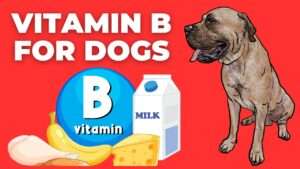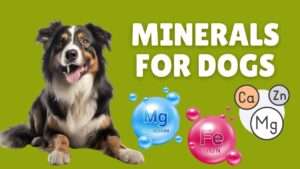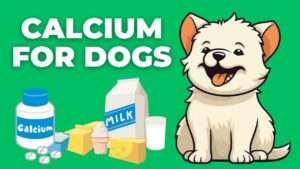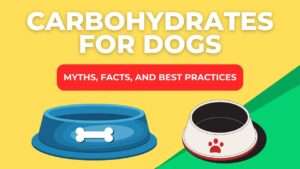Yogurt, with its creamy texture and probiotic goodness, is a popular dairy product enjoyed by many.
But can our canine companions partake in this tangy treat as well?
Let’s delve into the world of yogurt and its suitability for dogs, exploring both its potential benefits and risks.
Contents Overview
What is Yogurt?
Yogurt is a creamy dairy product made by fermenting milk with live bacteria cultures. It’s known for its tangy flavor and smooth texture, packed with essential nutrients like calcium, protein, and probiotics.
Enjoyed worldwide, yogurt can be eaten plain or flavored, and it’s a versatile ingredient in cooking and baking.
The Nutritional Value of Yogurt
Yogurt offers several key nutrients that can benefit both humans and dogs:
- Probiotics: Yogurt contains beneficial bacteria known as probiotics, which support digestive health and may help regulate bowel movements in dogs.
- Calcium: Yogurt is rich in calcium, which is essential for maintaining strong bones and teeth in dogs.
- Protein: Yogurt provides a moderate amount of protein, which supports muscle growth and repair in dogs.
- Vitamins: Depending on the type of yogurt, it may contain vitamins such as vitamin D and vitamin B12, which contribute to overall health and vitality.
Can Dogs Safely Eat Yogurt?
Yes, dogs can eat yogurt safely in moderation, but there are a few considerations to keep in mind.
Plain, unsweetened yogurt is best, as added sugars and artificial sweeteners can be harmful to dogs.
Yogurt contains probiotics that can aid in digestion and support gut health for dogs, just as it does for humans.
However, some dogs may be lactose intolerant, so it’s essential to monitor for any signs of digestive upset after introducing yogurt into their diet.
Additionally, yogurt should only be given as an occasional treat and not as a primary food source for dogs.
Overall, yogurt can be a safe and nutritious snack for dogs when offered in appropriate amounts and under supervision.
Potential Benefits of Feeding Yogurt to Dogs
When fed responsibly, yogurt may offer several potential benefits for dogs:
Probiotics
Yogurt contains live, active cultures of beneficial bacteria, commonly known as probiotics.
These probiotics can promote a healthy gut flora in dogs, aiding in digestion and supporting their overall gastrointestinal health.Improved Digestion
The probiotics present in yogurt can help regulate digestion in dogs, reducing instances of diarrhea, constipation, and other digestive issues.
This can be particularly beneficial for dogs with sensitive stomachs or those transitioning to new diets.Boosted Immune System
A healthy gut is closely linked to a strong immune system. By promoting the growth of beneficial bacteria in the gut, yogurt may help bolster your dog’s immune response, potentially reducing the risk of infections and illnesses.
Nutrient Absorption
A balanced gut flora can enhance nutrient absorption in dogs, ensuring they derive maximum nutrition from their diet.
This is especially important for senior dogs or those with certain health conditions that may affect nutrient absorption.Support for Dogs on Antibiotics
Antibiotics, while essential for treating bacterial infections, can also disrupt the natural balance of bacteria in the gut, leading to digestive upset.
Feeding yogurt with live cultures during and after a course of antibiotics may help replenish the beneficial bacteria in the gut and minimize gastrointestinal side effects.
Potential Risks of Feeding Yogurt to Dogs
1- Lactose Intolerance
Like some humans, dogs can also be lactose intolerant, meaning they lack the enzyme lactase needed to digest lactose, the sugar found in dairy products. Feeding yogurt to lactose-intolerant dogs can lead to digestive upset, including diarrhea, gas, and abdominal discomfort.
2- Obesity
Yogurt, especially flavored or sweetened varieties, may contain added sugars and calories that can contribute to obesity in dogs if fed in excess. Obesity increases the risk of various health problems, including diabetes, joint issues, and heart disease.
3- Allergic Reactions
Some dogs may be allergic to components in yogurt, such as milk proteins. Allergic reactions can manifest as itching, skin irritation, gastrointestinal upset, or respiratory issues. It’s essential to monitor your dog closely for any signs of allergic reactions after feeding yogurt.
4- Bacterial Contamination
While yogurt contains beneficial bacteria, it can also harbor harmful bacteria, such as Salmonella or E. coli, especially if it’s not handled or stored properly. Feeding contaminated yogurt to dogs can result in foodborne illnesses, causing symptoms like vomiting, diarrhea, and lethargy.
How to Safely Serve Yogurt to Your Dog
- Start Slowly
Introduce yogurt into your dog’s diet gradually, starting with small amounts to gauge their tolerance. This approach allows you to monitor your dog for any signs of digestive upset or allergic reactions before increasing the serving size. - Choose Plain Yogurt
Opt for plain, unsweetened yogurt without any added flavors, sweeteners, or artificial ingredients. Plain yogurt reduces the risk of digestive upset and provides a healthier option for dogs. Avoid yogurts with added sugars, as these can contribute to obesity and dental issues in dogs. - Check for Lactose Intolerance
Determine if your dog is lactose intolerant before feeding them yogurt. While yogurt contains less lactose than milk, some dogs may still experience digestive discomfort if they lack the enzyme lactase needed to digest lactose. Monitor your dog for any signs of lactose intolerance, such as diarrhea or gas, after feeding yogurt. - Monitor Portion Sizes
Limit the amount of yogurt you feed to your dog to avoid overconsumption of calories and potential weight gain. Treat yogurt as an occasional snack or treat rather than a primary food source in your dog’s diet. A small spoonful of yogurt can be sufficient for most dogs, depending on their size and dietary needs. - Incorporate Yogurt Into Meals
Mix yogurt with your dog’s regular food or use it as a topping for kibble to make mealtime more enjoyable. This allows you to incorporate yogurt into your dog’s diet in a controlled manner, ensuring they receive the health benefits without overindulging. - Use Yogurt in Homemade Treats
Incorporate yogurt into homemade dog treats or frozen snacks for a refreshing and nutritious treat option. You can combine yogurt with fruits, vegetables, or peanut butter to create delicious and healthy snacks for your furry friend. Just be mindful of any potential allergens and adjust the recipe accordingly. - Serve Yogurt Responsibly
Offer yogurt to your dog in a clean food bowl or as a handheld snack, depending on their preference. Supervise your dog while they eat yogurt to prevent any accidents or choking hazards. Afterward, clean their food bowl thoroughly to maintain proper hygiene and prevent bacterial contamination.
When to Avoid Yogurt to Dog
- Lactose Intolerance: If your dog is lactose intolerant or has difficulty digesting dairy products, it’s best to avoid feeding them yogurt to prevent digestive upset.
- Allergic Reactions: If your dog has known allergies to dairy products or specific ingredients found in yogurt, it’s important to avoid feeding them yogurt to prevent allergic reactions.
- Weight Management: If your dog is overweight or prone to obesity, it’s advisable to avoid feeding them yogurt, especially flavored or sweetened varieties, to prevent excessive calorie intake.
- Medical Conditions: If your dog has certain medical conditions, such as pancreatitis or inflammatory bowel disease (IBD), it’s best to avoid feeding them yogurt or consult with your veterinarian before doing so to ensure it won’t exacerbate their condition.
- Yogurt with Additives: If the yogurt contains additives, such as artificial flavors, sweeteners, or preservatives, it’s best to avoid feeding it to your dog to prevent potential health issues. Stick to plain, unsweetened yogurt for safety.
- During Antibiotic Treatment: If your dog is undergoing antibiotic treatment, it’s best to avoid feeding them yogurt until after the course of antibiotics is completed, as the yogurt’s probiotics may interact with the medication.
Safe and Suitable Alternatives of Yogurt for Dogs
If yogurt isn’t an ideal option for your dog, there are safe and suitable alternatives to consider.
Plain, unsweetened kefir, a fermented milk drink akin to yogurt, offers similar probiotic benefits with less lactose.
Cottage cheese, low in lactose and high in protein, can be a viable alternative for dogs with lactose sensitivities. Cooked eggs provide a protein-rich option packed with essential nutrients.
Furthermore, certain fruits and vegetables, such as blueberries, carrots, and green beans, can serve as nutritious snacks or meal additions for your canine companion.
Always introduce new foods gradually and monitor for any adverse reactions.
Bottom Line
In conclusion, yogurt can be a safe and nutritious treat for dogs when fed in moderation and with consideration for any dietary sensitivities or allergies.
Packed with probiotics, calcium, and protein, yogurt offers several potential health benefits for our canine companions.
However, it’s essential to choose plain, unsweetened varieties and monitor your dog’s response closely. With careful consideration and moderation, you can share a dollop of yogurt with your beloved pup and potentially contribute to their overall health and well-being.
So go ahead, spoon out a small serving of plain yogurt, and treat your furry friend to a tangy and wholesome snack!




































+ There are no comments
Add yours